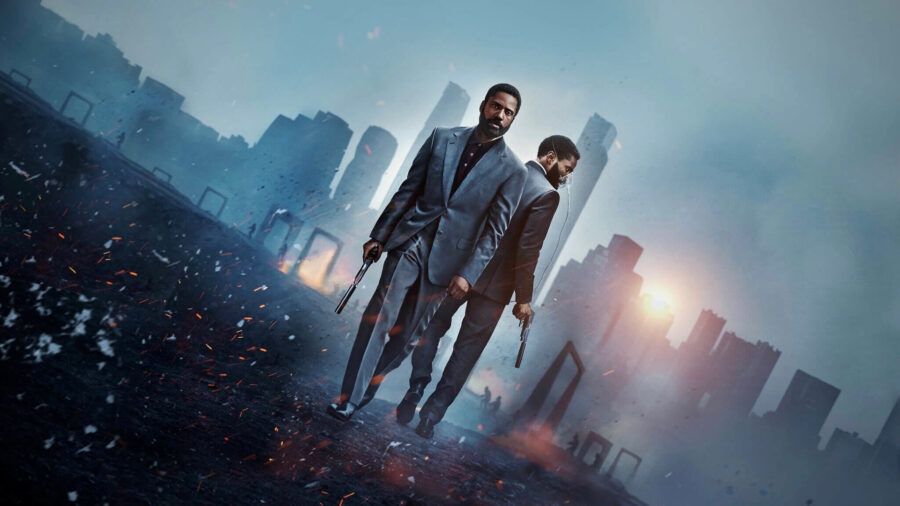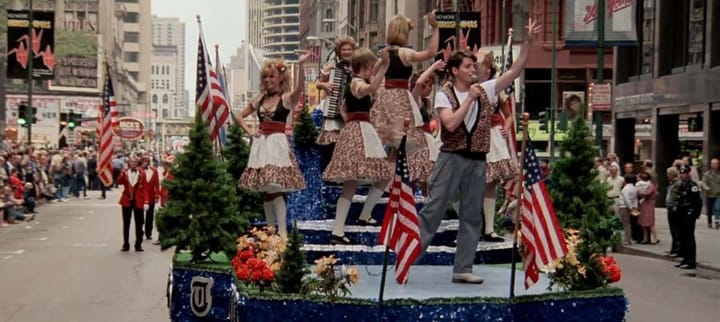A Protagonist Paradox

Tenet is a mindf@*k of a movie. In true Christopher Nolan form, we head first into time theory, and it’s his most esoteric and obfuscated story yet. But it is a frigging brilliant masterpiece and probably one of the most cinematic movies of the young century.
Now that is a lot of hyperbole for a movie that I didn’t full understand and one that I didn’t actually see in the theater, but has everything that is lacking in today’s event films. The adjectives are endless- bold, audacious, complex, challenging, confusing, fun, thrilling, heart-pounding- you can go on and on. But the best way to sum it up is that it’s an expression of an idea that can only be articulated through the medium of cinema.
It harnesses a scope, vision, and feeling that you can only explore as a feature film, showing a clear differentiation in the recently more opaque relationship with its brethren medium of television. Sure you could tell this story as a television limited series, but you can’t execute THIS vision of this story on the small screen. This vision deserves to be seen on the big screen of a theater. While I enjoyed watching it on my TV at home, it is disappointing to not have the full experience of a theatrical viewing of the film. But in these difficult times, still having art to turn to regardless of the format, is a panacea for thought and exploration.
Tenet is about our protagonist, or I should say ‘Protagonist’, who gets tied up in a complex plot to save the world from a mad man, who can jump through time and has tied his death to the end of the world in some sort of crazy time paradox. Yeah, high-concept doesn’t even begin to describe it.
There are many ways to dissect this movie, and we’ll touch on some of them throughout this piece, but I want to start with the most endearing parts of this movie— it’s set-pieces. They have gusto and grandeur but with an authentic sense unlike most that is seen in any modern film or television series. And regardless of what you might think of the story and its ability to engage, these performance sequences are everything that sets Nolan and his films apart.
The settings are excitingly imaginative, using the unorthodox narrative to create unique fun while heavily relying on visual effects and real settings, rather total green screen CGI, that gives a visceral thriller element that is missing on digitally painted worlds. You feel the scope, scale, and intent of the scene.
The opening sequence of Tenet may go down as one of my favorite opening scenes of all time. It sets the stage for the epic tone of the film to come. Nolan has earned the creative and production resource latitude that few working directors have and he uses it to its fullest. As to not give too much way, I’ll just state— Opera House, Hostages, Extraction. It’s tense, sweeping, and enigmatic. Watch the movie if for nothing, this scene.
It reminded me instantly of the opening heist scene from *The Dark Knight*, setting the tone for what is to come. And what to come is a mixed bag of mystery, complexity, and wizardry.
I say mixed bag because this movie isn’t perfect, it’s imperfect. Actually, the more apt adjective that will accompany this film is— *polarizing.* Watching this story, it quickly delves deep it the discussion of time theory, or at least a branch of, that is elemental to the plot of the story and let’s say, charitably, it’s complex. Some will think it’s a bunch of misleading jargon made up to seem smart, not worth the energy. Others will do their best to parse and track what is happening, but will give up, not being able to understand anything. While some will think it is smart, mind-bending, and brilliant, even if they don’t totally get it. I fall closer to the later category, as while I did my best to track what they were expressing about their use of time, I soon gave up, sticking to the high-level view of what the characters were trying to achieve in any given scene. Going this route, I could follow the plot of the story, but without the subtext of the film.
This is not what I or any filmmaker would say is an optimal way for an audience to experience your film. But honestly, it was fine. I was able to grasp areas of the time thesis they were discussing, but the important part was that I enjoyed what was happening on screen. I don’t know if the foundational theories discussed are correct, made up, or if they would hold up under scrutiny (they are called theories for a reason), I was able to track where we were in the story and the current objectives of the characters, allowing me more room to enjoy the topnotch set pieces of the film. And maybe this is even intentional, not holding back on complexity, to pull you back to the film again and again to gleam something new each time.
Nolan is one of the biggest proponents of the cinema viewing experience crafting his films specifically for that medium. But this includes more than just the single experience and visuals on scene. He wants you to think and wants you to come back to these films and continue to explore them, experience them continually.
As I stated earlier, while Tenet is esoteric and hard to track, I’ve gleamed that the main idea it poses is to question existence and our place in it. This film more than many of his other works, has more layered, interwoven themes, is less emotionally complex on the surface, but has something buried deeper under the complex narrative structure. While difficult to spot, he leaves sprouts that poke out, that if you listen closely, you start to understand the bigger, but not necessary clearer picture.
While spinning through large scenes of exposition of the plot, Nolan would weave in specific callouts to of our main character (the fantastic and fun John David Washington) as the ‘Protagonist’ in this story. Its particularly interesting choice to call out a story structure term (and use it as the main characters default name ‘Protagonist’), while not breaking the fourth wall, that leads me to the idea there are deeper meanings to this story.
This film is dense with information, so finding these sprouts of deeper meaning are hard to find and grasp onto (and an intriguing challenge). But hanging a lantern on this story being our main characters ‘story’ and about him controlling the narrative, makes me think that it has more to do with how our main character perceives his world, as there are also discussions and uses of alternative worlds, timelines, and universes. A creative professional such as Nolan wouldn’t use an on-the-nose story tool in his narrative without a deeper intention.
This film, as with many of Nolan’s previous, is difficult to make sense of on first viewing and why I’m not exploring more in-depth here. While thinking about it, searching for clues to what this film’s purpose is, I started to think about Nolan’s obsession with time. Be it part of the story or as a function of the narrative structure, he continues revisit and convince of ‘time’ stories from every conceivable angle, which I’m sure is a deeper rabbit hole than what even makes it onto the screen. I won’t lie that there is a fatigue that is beginning to set in on his time-based narratives. The mental gymnastics to track and follow are wearing.
But I do admire his consistency to explore a topic that has endless permutations to create narrative cinematic tomes. Regardless of my small feeling of fatigue a constant topic, he continues to create impeccable cinematic experiences.
That’s not to say every Nolan film is perfect or lands evenly, but each entry is an exciting, interesting, and thrilling experience, with each film gets bigger and bolder. He makes stories that can’t be replicated anywhere else- not theater, not television, not digital. Only in the movies. Tenet is no exception.
I’ve allowed myself to stop worrying about the details and learn to love the ride. This may have the effect of having a weakened connection with the characters and story, but with so much to chew on, I will definitely be rewatching all of his films numerous times, and with each viewing growing a greater connection with them and concurrently, ourselves. Which maybe the best relationship a viewer can have with a work of art.
And maybe the simple intention all along.





Comments ()